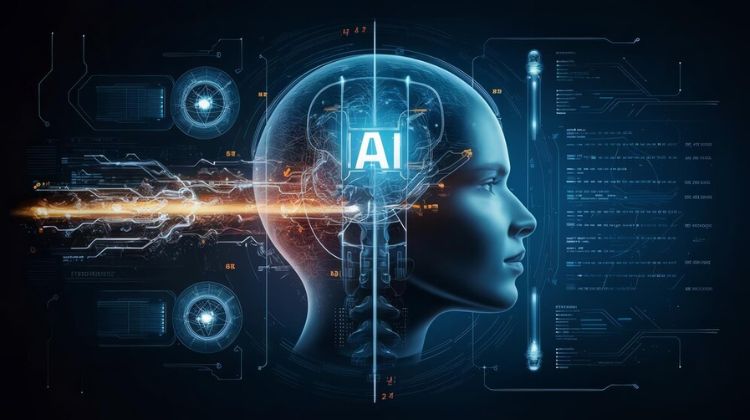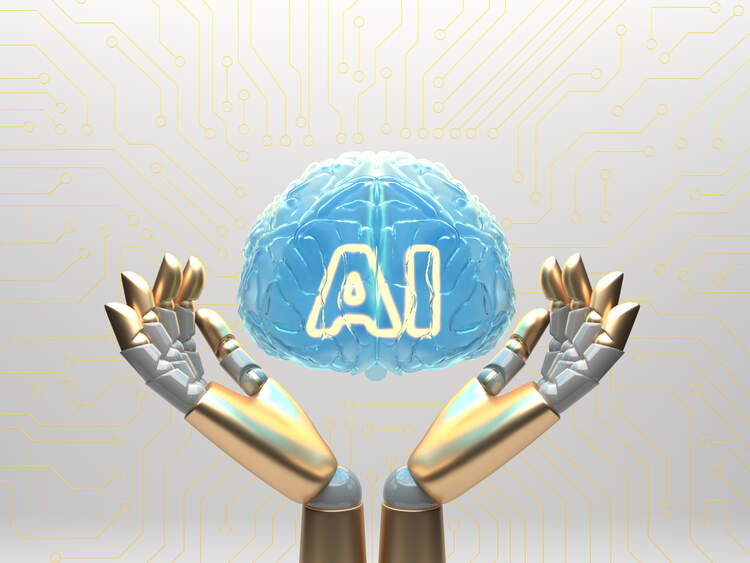
9 minute read
Does Quantum Computing Require Programming?
For Quick Enquiry: Click Here
Introduction: Understanding the Intersection of Quantum Computing and Programming
Quantum computing is one of the most exciting and transformative technologies of our time. It promises to revolutionize industries by solving complex problems that are beyond the reach of classical computers. However, with all the hype surrounding quantum computing, one common question arises: Does quantum computing require programming? For those venturing into this field, especially in India, understanding the technical aspects is crucial. Many who are interested in quantum computing also want to Learn Artificial Intelligence Online in Noida to complement their knowledge and stay ahead in the tech game.
The relationship between quantum computing and programming is not straightforward. Unlike classical computing, where programming is relatively well-defined and standardized, quantum computing requires a different approach. The very principles that make quantum computing powerful also make programming for quantum computers a unique challenge. From understanding quantum mechanics to grappling with new programming languages, the learning curve can be steep.
In this blog, we'll delve into whether programming is essential for quantum computing, exploring how it fits into the broader context of this futuristic technology. We will also discuss the steps one should consider if they're serious about pursuing a career in quantum computing. Whether you’re a seasoned programmer looking to dive into quantum computing or someone looking to AI Course In Delhi as a stepping stone, this post will guide you through the intricacies of quantum programming.
Understanding the Fundamentals of Quantum Computing
1. Quantum Mechanics as the Backbone of Quantum Computing
Before diving into programming for quantum computers, it's essential to grasp the fundamentals of quantum mechanics. Quantum mechanics is the science that explains how the smallest particles in the universe—like electrons and photons—behave. This understanding forms the backbone of quantum computing. Unlike classical bits, which are either 0 or 1, quantum bits, or qubits, can exist in a superposition of states, thanks to the principles of quantum mechanics.
Understanding quantum mechanics might feel like trying to learn a new language. It’s not just about memorizing rules; it’s about shifting your entire way of thinking. Imagine trying to explain a color you've never seen before—it's abstract and mind-bending. But just like learning any new language, starting with the basics will help you build a solid foundation. For those interested in quantum computing, complementing this knowledge by deciding on AI ML Courses in Noida can be incredibly beneficial, as AI techniques can often be applied to quantum computing tasks.
Quantum mechanics also introduces the concept of entanglement, where two qubits can be correlated in such a way that the state of one instantly affects the state of the other, no matter the distance. This phenomenon is a key feature that quantum computing relies on to perform complex calculations at incredible speeds.
For humor’s sake, think of quantum mechanics as trying to understand the plot of a Christopher Nolan movie—there’s a lot happening at once, and it doesn’t always make sense on the first watch. But once you grasp the core ideas, everything starts to fall into place.
2. The Role of Quantum Algorithms in Quantum Computing
Quantum algorithms are the heart of quantum computing. They are specifically designed to take advantage of the unique properties of quantum mechanics. Understanding these algorithms is crucial if you want to program quantum computers effectively. Unlike classical algorithms, which are linear and deterministic, quantum algorithms are probabilistic and take advantage of superposition and entanglement to solve problems more efficiently.
One of the most famous quantum algorithms is Shor's algorithm, which can factor large numbers exponentially faster than the best-known classical algorithms. This has significant implications for cryptography, as it could potentially break widely used encryption methods. Another important algorithm is Grover's algorithm, which can search unsorted databases faster than any classical algorithm.
Programming quantum algorithms requires a deep understanding of both quantum mechanics and computational theory. It’s like trying to bake a cake with ingredients you’ve never used before—you need to know how each component behaves to get the desired outcome. That’s why many aspiring quantum programmers are also keen on the AI Course In Delhi, as AI can help optimize and enhance quantum algorithms.
For a bit of humor, imagine trying to cook a gourmet meal without knowing what half the ingredients do. You could end up with a masterpiece or a mess—but that’s the thrill of quantum algorithms!
3. Learning Quantum Programming Languages and Tools
Just as classical computing has languages like Python and Java, quantum computing has its own set of programming languages and tools. However, these languages are designed to operate on quantum computers and are quite different from traditional programming languages. Some of the popular quantum programming languages include Qiskit, developed by IBM; Cirq, developed by Google; and Microsoft's Q#.
These languages are designed to help programmers write and execute quantum algorithms on quantum computers. However, due to the nascent stage of quantum computing, these languages are still evolving. Learning them requires patience and a willingness to experiment, much like a scientist in a lab.
Imagine trying to build a car while the concept of the wheel is still being developed—that’s what it feels like to work with quantum programming languages. But for those who are curious and determined, it can be an incredibly rewarding experience.
To lighten things up, think of quantum programming languages as the tech world’s version of the “Iron Man” suit—they’re still in development, but when fully realized, they could change everything. For those looking to Learn Artificial Intelligence Online in Noida, these quantum tools might be the next step in their tech journey.
Evaluating the Need for Programming Skills in Quantum Computing
1. The Debate: Do You Need to Be a Programmer?
One of the most debated questions in the field of quantum computing is whether you need to be a programmer to work in this space. The answer is nuanced. While programming is certainly a crucial aspect of quantum computing, it’s not the only skill required. Quantum computing is a multidisciplinary field that involves physics, mathematics, computer science, and engineering. Each of these disciplines plays a vital role in the development and implementation of quantum technologies.
For those with a background in physics or mathematics, understanding the theoretical aspects of quantum computing might come more naturally. However, learning to program quantum computers could be challenging. Conversely, those with a background in computer science might find programming more straightforward but struggle with the abstract concepts of quantum mechanics.
In India, where the tech industry is booming, many professionals are keen on the AI Course In Delhi to enhance their skill sets. Similarly, those interested in quantum computing might need to learn programming to fully engage with this technology. However, it's worth noting that quantum computing is still in its early stages, and as the technology matures, tools and frameworks may emerge that make programming more accessible to non-programmers.

On a lighter note, think of quantum computing as a team sport—while the programmer might be the star player, the physicist, mathematician, and engineer are all crucial to winning the game. So, whether or not you need to be a programmer depends on what position you want to play.
2. The Role of Programming in Quantum Computing Applications
Programming plays a crucial role in the development and application of quantum computing technologies. Quantum computers require specialized software to perform complex calculations, and this software is developed using quantum programming languages. However, the role of programming in quantum computing goes beyond just writing code.
Programmers in the quantum computing field are also involved in optimizing quantum algorithms, developing error correction methods, and creating simulation tools that help researchers understand and experiment with quantum systems. These tasks require a deep understanding of both programming and quantum mechanics.
For those looking to enter the quantum computing field, learning to program is essential, but it’s not the only skill you need. Understanding the broader context of quantum computing and how it fits into the tech ecosystem is just as important. This is where complementary knowledge, such as the skills gained when you learn AI ML Courses in Noida, can be invaluable.
To add a bit of humor, imagine programming in quantum computing as trying to play chess in a universe where the rules change every time you move a piece. It’s challenging, unpredictable, and requires both strategy and adaptability.
3. Balancing Programming Skills with Other Expertise
While programming is a critical skill in quantum computing, it’s important to balance it with other areas of expertise. Quantum computing is a multidisciplinary field, and success in this space requires knowledge and skills across various domains. This includes not only programming but also a deep understanding of quantum mechanics, mathematical modeling, and systems engineering.
For those in India looking to break into the quantum computing field, starting with a foundation in computer science and then expanding into quantum mechanics and related areas can be a good strategy. Additionally, many professionals find that learning complementary skills, such as those offered when you Learn Artificial Intelligence Online in Noida, can provide a broader perspective and enhance their ability to contribute to the field.
For a bit of humor, think of quantum computing as a puzzle where each piece represents a different skill. Programming is just one piece of the puzzle—you need the whole set to complete the picture.
Conclusion: The Interplay Between Quantum Computing and Programming
Does quantum computing require programming? The answer is a resounding yes but with important caveats. Quantum computing is a complex and multidisciplinary field that requires expertise in various areas, including quantum mechanics, mathematics, and programming. While programming is essential, it’s not the only skill needed to succeed in this space.
For those in India looking to enter the quantum computing field, it’s important to develop a strong foundation in computer science and programming. However, it’s equally important to understand the broader context of quantum computing and how it fits into the tech ecosystem. This is where complementary knowledge, such as the skills gained when you learn AI ML Courses in Noida, can be invaluable.
As the field of quantum computing continues to evolve, so too will the tools and frameworks used to program quantum computers. While the learning curve is steep, the potential rewards are significant. Whether you’re a seasoned programmer or just starting your journey, understanding the interplay between quantum computing and programming is crucial to unlocking the full potential of this transformative technology.
The journey into quantum computing can be challenging—imagine trying to solve a puzzle where the pieces keep changing shape! However, the rewards are potentially revolutionary, offering the chance to be at the forefront of technological advancement. Whether you are a seasoned programmer or a newcomer, embracing both programming and the theoretical aspects of quantum computing will be key to your success.
Also Read This:-
Artificial Intelligence Classes | Delhi | Noida | Gurugram
What Were The First AI Advancements In the Retail Program You Made?










